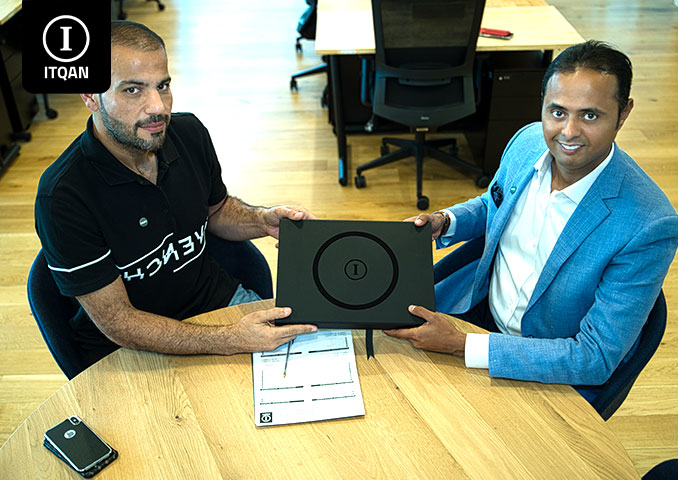Establishing a company in the Dubai Free Zone requires many administrative and legal steps and procedures, which investors must be aware of before starting the establishment process. In this article, we will review together the process of setting up a company in the Dubai Free Zone, focusing on the main steps, basic requirements and advantages that this process offers to investors.
Because in light of the vibrant economic environment in Dubai, free zones are among the most preferred areas for investors wishing to establish their companies. Among these areas, the Dubai Free Zone stands out as an ideal investment destination for various economic sectors. Establishing a company in the Dubai Free Zone allows investors to access a diverse global market, in addition to benefiting from the many competitive advantages that this region offers.
By exploring these aspects, we will highlight the importance of setting up a company in Dubai Free Zone as a strategic step to expand business and achieve success in the global business market.

Establishing a company in the Dubai Free Zone
Opening a company in the Dubai Free Zone is considered an important strategic step for investors who want to benefit from the competitive advantages that this region provides for business. Here are general steps for establishing a company in the Dubai Free Zone:
- Market Study and Strategic Planning: Conduct an in-depth market study to understand the opportunities and challenges your company may face in the Dubai Free Zone. Develop a strategic plan that defines the company’s goals and business plans.
- Choosing the type of company: Decide what type of company you want to establish, whether it is a limited liability company, a sole proprietorship, or a joint stock company.
- Choosing a company name: Choose a suitable and unique name for your company and ensure its availability and registerability in the Dubai Free Zone.
- Arranging a partnership with a local sponsor (if necessary): In some cases, establishing a company may require a local sponsor. Make sure you agree on the terms and arrangements with your local sponsor.
- Submitting a registration application: Submit a company registration application to the competent authority in the Dubai Free Zone, and submit all required documents along with the prescribed fees.
- Obtaining the necessary licenses and approvals: After submitting the application, you may need to obtain licenses for your company’s activity and the necessary approvals from the relevant authorities in the Dubai Free Zone.
- Annotate the necessary contracts and agreements: Annotate all necessary contracts and agreements between partners, shareholders, and the local sponsor (if necessary), and ensure that they are properly documented and implemented.
- Registration in the Commercial Registry: After obtaining the necessary approvals and licenses, register the company in the Commercial Registry and obtain the final commercial license.
- Securing the head office: Secure a head office for the company in the Dubai Free Zone and ensure the availability of all necessary facilities for the smooth running of business.
- Starting operational businesses: After obtaining the license and officially establishing the company, you can begin implementing your operational plans and start working in the Dubai Free Zone.
The cost of establishing a company in the free zone
The cost of establishing a company in a free zone can vary based on several factors, including the type of company, its activity, and the free zone you choose. Here are some factors that may affect the cost of establishing a company in a free zone:
- Registration and license fees: Establishing a company requires paying registration fees and obtaining the necessary licenses from the local authorities in the free zone.
- Consulting and Legal Services Fees: You may need to consult a lawyer or legal advisor to assist you in the company formation process, which may result in consulting fees.
- Head office and infrastructure costs: You have to rent a head office in the free zone, and the office infrastructure may require additional costs.
- Local sponsor fees (if necessary): In some cases, you may need a local sponsor to set up the company, and this may require paying a sponsorship fee.
- Certification and documentation fees: The incorporation process may require paying additional fees to issue the necessary certificates and documents from local authorities.
- Marketing and advertising costs: After establishing the company, you may need to pay marketing and advertising costs to attract customers and increase awareness of your brand.
Documents for establishing a company in the Dubai Free Zone
Setting up a company in a free zone in Dubai usually requires a specific set of documents. These documents may vary depending on the type of company and the activity it carries out. Here is a general list of common documents that may be required:
- Registration application form: contains company information such as name, activity, organizational structure, and shareholders.
- A copy of the lease contract or ownership document: to confirm the address of the company’s headquarters.
- Passports and photo of key shareholders and directors: Certificate of residence status may also be requested.
- Personal physician file and certificate without penalties: These can be required for directors and shareholders.
- Legal power of attorney: If a lawyer has been appointed to submit documents on behalf of the company.
- Shareholder data form: contains information about the major shareholders and their shares in the company.
- Directors Data Form: Contains information about key directors and signature details.
- Employee data form: If there are plans to hire employees.
- A sample business plan and financial projections: It contains financial projections for the coming years.
- Applicant’s identification document: A copy of the ID card or passport must be submitted.

Types of companies that can be established in the Emirates
Several types of companies can be established in the UAE, which include but are not limited to:
- Sole Proprietorship: Also known as a “single limited company,” where the sole owner and manager is one person who bears all financial and legal responsibilities.
- Joint stock company: It is a company in which the capital is divided into shares and the shareholders have specific rights and responsibilities according to the type of their contribution.
- Limited Liability Company: It is also known as a “Limited Liability Company by Guarantee”, where the capital is divided into shares but the liability is limited to a certain amount pledged by the shareholders.
- The company operating in the freedom of guarantee: It is also known as the “private joint stock company”, which is a company that is established according to an agreement between a number of individuals to contribute capital and achieve profits.
- Personal Limited Company: It is a company established under an agreement between at least two partners, where each partner bears limited liability for the debts and financial obligations of the company.
- United Company: It is a company established under an agreement between a number of partners to contribute to the capital and jointly manage the business, profits and losses.
The requirements and procedures necessary to establish each type of these companies differ, and investors must review the fine details and consult with Itqan Company experts in order to ensure compliance with local laws and regulations.
Investment opportunities in free zones in Dubai
Free zones in Dubai provide multiple investment opportunities thanks to the stimulating commercial environment and advanced infrastructure. Among the most important investment opportunities in Dubai’s free zones are:
- Trade and Distribution: Free zones such as Jebel Ali and Dubai South provide excellent opportunities for companies wishing to trade, import and export products thanks to advanced logistics facilities and strategic location.
- Industry and Manufacturing: Free zones such as Jebel Ali Free Zone (JAFZA) and Dubai Airport Free Zone (DAFZA) provide opportunities for industrial companies to set up factories and production facilities thanks to tax exemptions and advanced infrastructure.
- Logistics and transportation services: Thanks to its central geographical location and modern logistics facilities, Dubai is a major hub for companies operating in the fields of shipping, warehousing and logistics services.
- Technology and Innovation: Free zones such as Dubai Internet City and Dubai Media City provide an ideal environment for companies operating in the fields of technology, media, and communications.
- Financial Services: The Dubai International Financial Center (DIFC) offers great opportunities for financial, banking and investment companies thanks to its outstanding legal and regulatory infrastructure.
- Healthcare and Pharmaceutical Industries: Free zones such as Dubai Healthcare City (DHCC) provide opportunities for investment in healthcare, medical services, biotechnology and pharmaceutical industries.
- Education and training: Free zones such as Dubai International Academic City provide opportunities for investment in the fields of education and training thanks to the presence of international universities and educational institutions.
- E-commerce: Free zones such as Dubai CommerCity provide an ideal environment for companies working in the field of e-commerce and digital technology.
- Tourism and Hospitality: Dubai provides great investment opportunities in the fields of tourism, hotels and tourism services thanks to its position as a global tourist destination.
- Energy and Environment: Dubai’s free zones encourage investments in renewable energy and environmental technology, providing opportunities for sustainable projects.
The main advantages of establishing a company in a free zone in Dubai
Establishing a company in free zones in Dubai provides many advantages that make it a preferred destination for investors and entrepreneurs. Among the main advantages:
- Tax exemptions: Companies in Dubai’s free zones enjoy tax exemptions on profits, which reduces financial burdens and increases profitability.
- Full Foreign Ownership: Free zones allow foreign investors to own 100% of a company’s shares, providing complete control of the business.
- Customs duty exemptions: Investors enjoy exemptions from customs duties on import and export, which helps reduce trade costs.
- Transfer of profits: Companies can transfer all profits abroad without restrictions, which provides great flexibility in money management.
- Ease of procedures: Free zones provide quick and easy company registration and establishment procedures, which helps speed up business start-up and reduce complications.
- Work and residence visas: Free zones provide facilities for obtaining work and residence visas for investors and employees, which contributes to attracting global talent.
- Advanced Infrastructure: Dubai’s free zones provide modern infrastructure that includes offices, industrial facilities, warehouses and logistics facilities, which supports business growth.
- Access to international markets: Thanks to their strategic location and global trade agreements, Dubai’s free zones provide access to vast international markets.
- Supportive business environment: Free zones provide a stimulating business environment with government support and specialized institutions that help companies succeed and expand.
- Reduced operating costs: Other facilities include reducing operating costs by providing additional support services and waivers, which enhances operating efficiency.
In concluding this article, we emphasize the importance of choosing the Dubai Free Zone as an option for establishing companies in Dubai , due to the many advantages that this zone offers in terms of freedom of ownership, lack of imposition of taxes, and simple procedures for incorporation. Through our partnership with Itqan Company, investors can benefit from the specialized services provided by the company to facilitate the process of establishing companies in the Dubai Free Zone with ease.
Itqan Company provides full support to investors by providing advice in choosing the appropriate economic activity, providing assistance in preparing and submitting the necessary documents, and following up on procedures with the concerned authorities. The company also seeks to provide high-quality services to enable investors to achieve their business goals in the Dubai Free Zone.
So, if you are thinking about establishing a company in the Dubai Free Zone, do not hesitate to rely on Itqan Company to provide the necessary support and ensure the success of your business in this thriving economic environment.
Frequently asked questions about establishing a company in the Dubai Free Zone
What are the main advantages of establishing a company in the Dubai Free Zone?
- Providing political and economic stability.
- Access to the Middle East and North Africa market.
- No taxes on profits.
- Freedom to transfer money and profit outside the country.
What are the basic steps to establish a company in the Dubai Free Zone?
- Determine the work activity and legal form.
- Choose a name for the company and ensure its availability.
- Submit a registration application and obtain the necessary approvals.
- Open a bank account for the company and submit the required documents.
- Obtaining a work permit and visa for employees
What are the costs associated with setting up a company in the Dubai Free Zone?
- Company registration and incorporation fees.
- Costs of employee visas and housing fees.
- Rental and infrastructure costs.
- Fees for additional services such as transportation and communications.
Can a foreign person establish a company in the Dubai Free Zone?
Yes, foreigners are allowed to establish companies in the Dubai Free Zone while adhering to some specific conditions and rules.
What types of companies can be established in the Dubai Free Zone?
- Sole proprietorship.
- Limited liability companies.
- Personal companies (partnerships).
